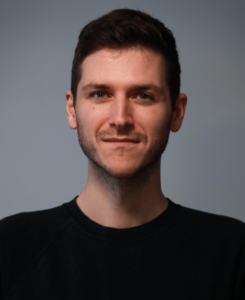In the following, I want to examine the notion of the ego from a variety of different perspectives. The central thesis is that our western conception of the ego is an illusion.
Allan Watts is one of the strongest proponents of this idea. He repeatedly states across a variety of sources, that the western ego, the very concept our entire system is built to maintain, feed and protect, is the single most serious and dangerous collective illusion. He sees the truth in a unity of things, of organism and environment. A reality we deny subconsciously at every turn.
This can be interpreted in a number of ways. When we talk about the ego we refer to the narrating part of our consciousness, that voice helps us not only to reflect on thoughts and emotions but also to legitimize them to oneself and the world.
This is an absolutely necessary function for survival. That sense of self is crucial in establishing our identity as separate from the surrounding entities, be it people or things. To function according to cultural and societal norms, the ego is essential.
But this is where it gets interesting, if we see this barrier between the self and the world as a necessary illusion, a construct to facilitate human society and evolution, we have a perspective from which to properly categorize the pain and suffering it brings. Self consciousness, this sensation of the organism obstructing itself, it can be very unpleasant. And as long as we try to please this sense of self without understanding its illusory nature, that feeling will never truly go away.
But if the ego is an illusion, then what is reality? Intellectually, the idea that we are all made from the same stuff resonates. Protons, neutrons, electrons, and quarks are the smallest common building blocks of the world as we understand it. Everything is made of these things. But can that oneness, that sameness that we share with the universe and its entities, be experienced by the individual? I believe so. By immersing yourself in nature for a prolonged period of time and practicing attention, we can intuitively understand that we are an integral part of the very thing we observe and seek to understand.
Henri-Louis Bergson takes this a step further, he claims that each person has the capacity to remember everything that has ever happened to them and to humanity at any time. But our psyche guards us from that overload of information because we do not need it to survive. This idea is indirectly related to the Jungian concept of the Collective Unconscious and, while undeniably fascinating, is hard to prove. The point for this discussion is that our sense of separateness is only ever a function for survival, nothing more.
It stands to reason that we know how to do one thing very well: survive. And we will do this at any cost. I find that we can understand the illusory nature of the ego without dismissing its usefulness. The ego is only ever a source of conflict if we give it too much importance. It is a tool for survival, but it is not what we are.
Sources and Further Reading
Watts, A. (2013). The joyous cosmology: Adventures in the chemistry of consciousness. New World Library.
Hofmann, A. (2021). Lsd – Mein Sorgenkind die entdeckung einer "Wunderdroge". Klett-Cotta.

